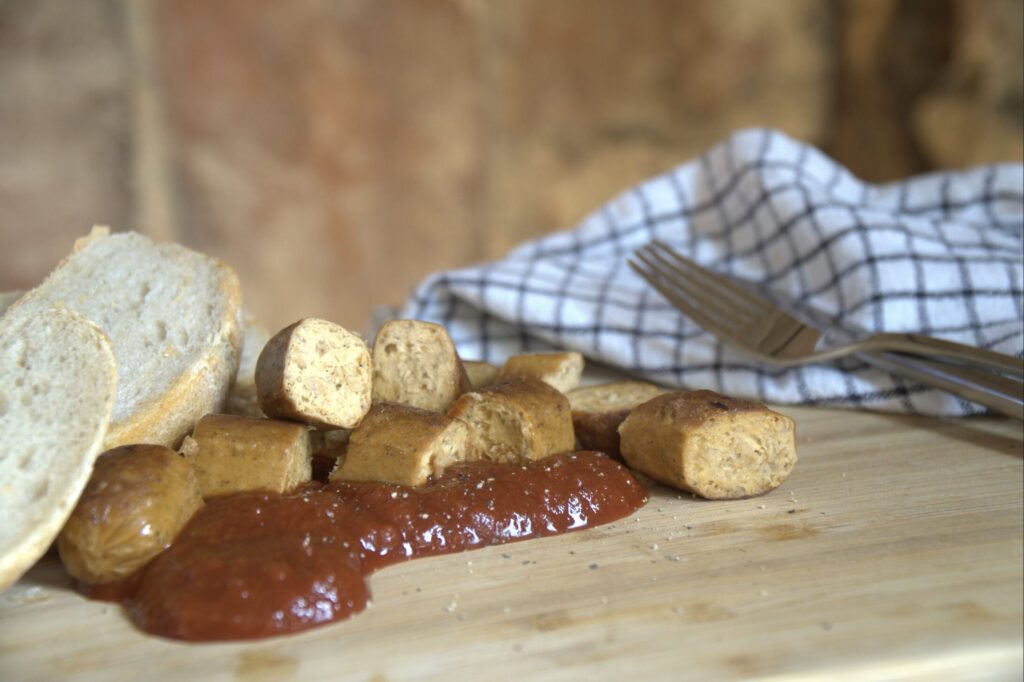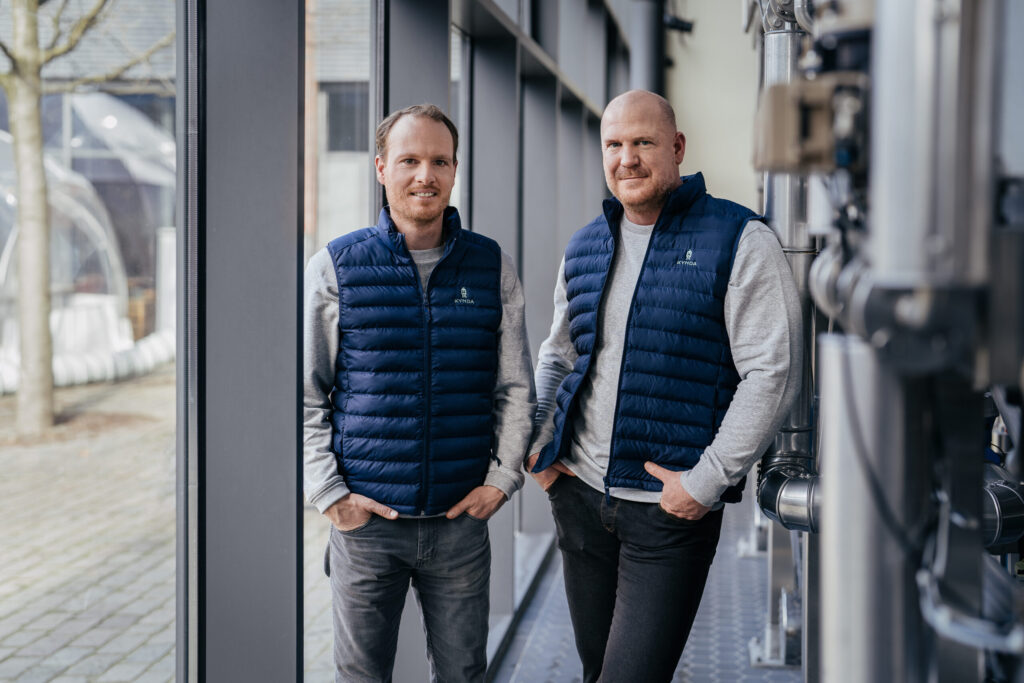Kynda Teams Up with The Raging Pig Co to Unveil Zero-Waste, Affordable Mycelium Meat Burgers
4 Mins Read
German biotech startup Kynda is set to introduce a zero-waste mycelium ingredient for use in plant-based and hybrid proteins, starting with a partnership with The Raging Pig Company, which will use the Kynda-Meat to produce vegan burgers.
Germany’s mycelium sector is heating up, with the newest product born out of the fungi soon to hit the market. Hamburg-based startup Kynda, which makes plug-and-play bioreactors and starter cultures for mycelium protein, is launching a zero-waste, biomass-fermented meat alternative ingredient that is already compliant with the EU’s novel food regulations.
Kynda will unveil the first innovation with its ingredient at trade fair Internorga (March 8-11), partnering up with plant-based pork producer The Raging Pig Company to introduce mycelium burger patties. It will be a precursor to the product’s launch Kynda’s market launch in Germany later this year.
“We are thrilled to showcase our mycelium-based products at Internorga in collaboration with The Raging Pig,” said Kynda CEO Daniel MacGowan von Holstein. “We’re beyond happy to team up with such a like-minded and purpose-driven company. This partnership signifies a huge milestone in our journey to revolutionise the food industry by offering truly sustainable alternatives.”
Valorising sidestreams to produce sustainable proteins

To make its mycelium ingredient, Kynda uses a range of food industry byproducts, with a particular focus on “underutilised streams such as soy-, oat- and rice-okara”, von Holstein told Green Queen. These sidestreams go through a submerged biomass fermentation process, where microorganisms are rapidly grown in a liquid medium, with the entire biomass becoming the end product.
A key advantage of biomass fermentation is that it can drastically cut down the time it takes to grow proteins, compared to livestock farming or traditional fermentation. Kynda claims that its fungi strain and highly efficient proprietary process reduce the fermentation time from an average of seven to 10 days “for best practices” to just 48 hours.
While the company is unable to disclose what strain it’s using, von Holstein confirmed that it was one that is compliant with the EU’s novel foods regulations, which means there are no regulatory hurdles, clearing the way for the product’s market entry.
The mycelium ingredient will spark interest from manufacturers looking to produce more sustainable, affordable and nutritious alternative proteins. Kynda’s mycelium product emits 700% fewer greenhouse gas emissions than pea protein, which is used by industry giants like Beyond Meat. It also has a protein content of 37% in dry matter, contains all nine essential amino acids, and is low in fat and rich in fibre and vitamins. Moreover, the ingredient is said to be cheaper to produce than plant-based texturates, with the startup suggesting it could be used in both plant-based and hybrid meat applications too.
This is what appealed to Raging Pig too, which was looking to “replace highly processed pea protein texturates in their products”, von Holstein explained. “As a B2B company, we can solve their needs with healthy, nutritious and sustainable Kynda-Meat,” he said.
Kynda enters a red-hot mycelium market

“Our focus has always been on taste and sustainability. With Kynda’s nutritious and allergen-free ingredients, we’re able to significantly lower our production costs and are finally able to compete with heavily subsidised meat producers,” said Raging Pig co-founder Arne Ewerbeck.
The company has swapped 17% of the pea protein obtained from high-moisture extrusion in its burger for Kynda’s mycelium ingredient. “By replacing highly processed raw materials with Kynda’s fermentation solution, we are answering the call of many consumers for healthy meat alternatives,” said Ewerbeck.
Raging Pig marks Kynda’s first collaboration for its mycelium protein, but further partnerships with B2C companies in both foodservice and retail will follow later this year. Plus, the startup is in the middle of a $4M seed funding round, and last year received a non-dilutive grant from Germany’s food and agriculture ministry to scale up its fermentation platform and produce mycelium protein more efficiently.
“We just received planning permission for our new facility, which will house our scaled-up 30,000-litre fermentation capacity,” von Holstein told Green Queen. “This will be built until the end of Q3 2024.”
Kynda is one of several German companies working with mycelium, which has exploded in popularity over the last few months for its nutritional benefits, climate credentials and production efficiency. Infinite Roots, also from Hamburg, closed a $58M Series B funding round in January, which is claimed to be the largest mycelium investment in Europe. Berlin-based Bosque Foods is similarly using mycelium to create whole-cut chicken and pork filets, as well as bacon. (Like Kynda, both companies leverage agricultural sidestreams.)
Estimates reveal that a third of all food produced worldwide goes to waste, amounting to 6% of global emissions, so using food industry byproducts to make alternative proteins is a shrewd move. And since mycelium can be scaled up rapidly and in a cost-effective manner, it has been touted as a potential for human nutrition insecurity and global hunger.
That’s Kynda cool, isn’t it?




